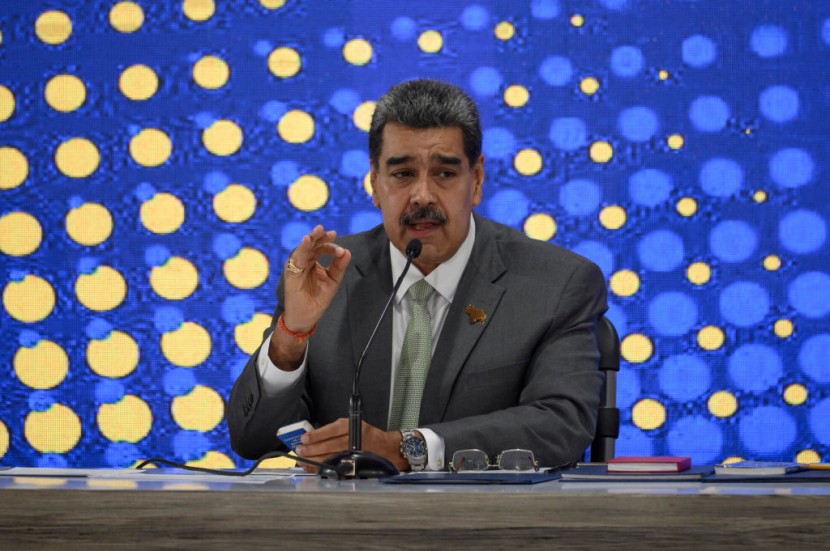Venezuelan President Nicolás Maduro has published a new map claiming two-thirds of neighboring Guyana as part of Venezuelan territory.
Maduro has ordered state-owned energy companies to begin exploration in the disputed area immediately, further escalating tensions in the region, as per Daily Mail.
Maduro's Actions Spark Global Concern

Maduro designated General Alexis Rodríguez Cabello as the sole authority of the Essequibo, a piece of land in Guyana slightly smaller than the state of Florida. He also granted Venezuelan citizenship to the more than 125,000 Guyanese living in the area.
However, Guyana strongly objected to the vote and denounced it as illegal, while international observers have questioned the election results. The government's report of high voter participation did not align with the empty voting stations observed on election day.
Amidst the rising tensions, Maduro announced the creation of the Guyana Integral Defense Zone (ZODI) with headquarters in Tumeremo, Venezuela. It remains unclear how large the military force in Tumeremo will be, but Maduro has indicated that this is just the first step in executing his mandate to invade Guyana.
Brazil has reinforced its northern border due to the escalating tensions between Venezuela and Guyana, as it shares borders with both countries. US officials are closely monitoring the situation and expressing concerns that Maduro may resort to military force. The White House declined to comment, referring inquiries to the State Department.
Guyana President Irfaan Ali condemned Maduro's actions as reckless in an interview with the Miami Herald. He plans to alert regional and world leaders about Maduro's attempt to disrupt the peace in the hemisphere. Ali is seeking the support of the United Nations Security Council, the United States, the Caribbean Community, the Organization of American States, and other countries to prevent the violation of Guyana's territory.
The border dispute between Venezuela and Guyana has a long history and is currently before the United Nations International Court of Justice. Pending a final decision, the court warned Maduro to refrain from taking any action that would modify the current situation in the disputed territory. The judges unanimously recognized that Guyana currently administers and exercises control over the area, according to Yahoo News.
Maduro's Essequibo Agenda, Mapping and Citizenship
Maduro's announcements included appointing his vice president, Delcy Rodriguez, to head a National High Commission for the defense of Guayana Esequiba. He also ordered the publication of a new map of Venezuela to include the new state and the creation of state-run oil and mining companies for the exploration of resources within the disputed region.
Additionally, Maduro ordered regime officials to begin the process of giving Venezuelan nationality to the estimated 125,000 people living in Essequibo.
The border dispute has been reignited by Guyana's discovery of vast oil deposits in the region in 2015. The 15-member Caribbean Community has stated that Venezuela cannot violate international law and disregard the order of the International Court of Justice. The Biden administration has called for a peaceful resolution to the dispute, urging both Venezuela and Guyana to respect the 1899 award determining the land boundary.
Maduro's claim over the disputed territory in Guyana was sealed with a referendum in which Venezuelans approved his sovereignty claim. However, Guyana views this as a step toward annexation and has appealed to the International Court of Justice. The court has ordered Venezuela not to take any action to change the status quo until a ruling on the competing claims is made, which could take years.
The Venezuelan government has faced accusations of falsifying the referendum results, as voting stations across the country were reportedly quiet and underwhelming in terms of turnout. Guyana's foreign secretary believes that Venezuelans have sent Maduro a strong message, while sources within Guyana's government express relief at the poor turnout.
As tensions between Venezuela and Guyana continue to mount, the international community is closely watching the situation, hoping for a peaceful resolution to the territorial dispute, The Guardian reported.
© 2025 HNGN, All rights reserved. Do not reproduce without permission.








